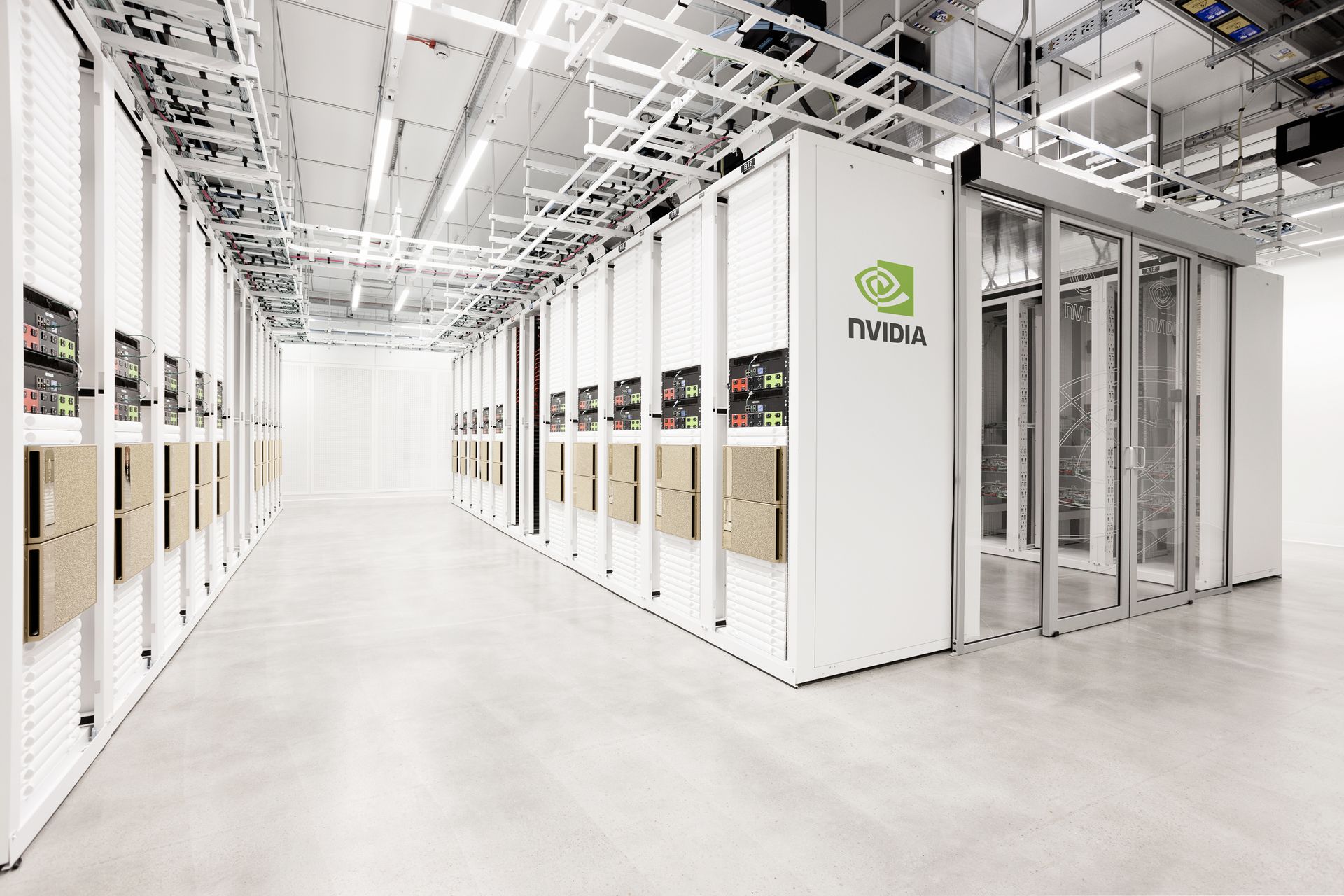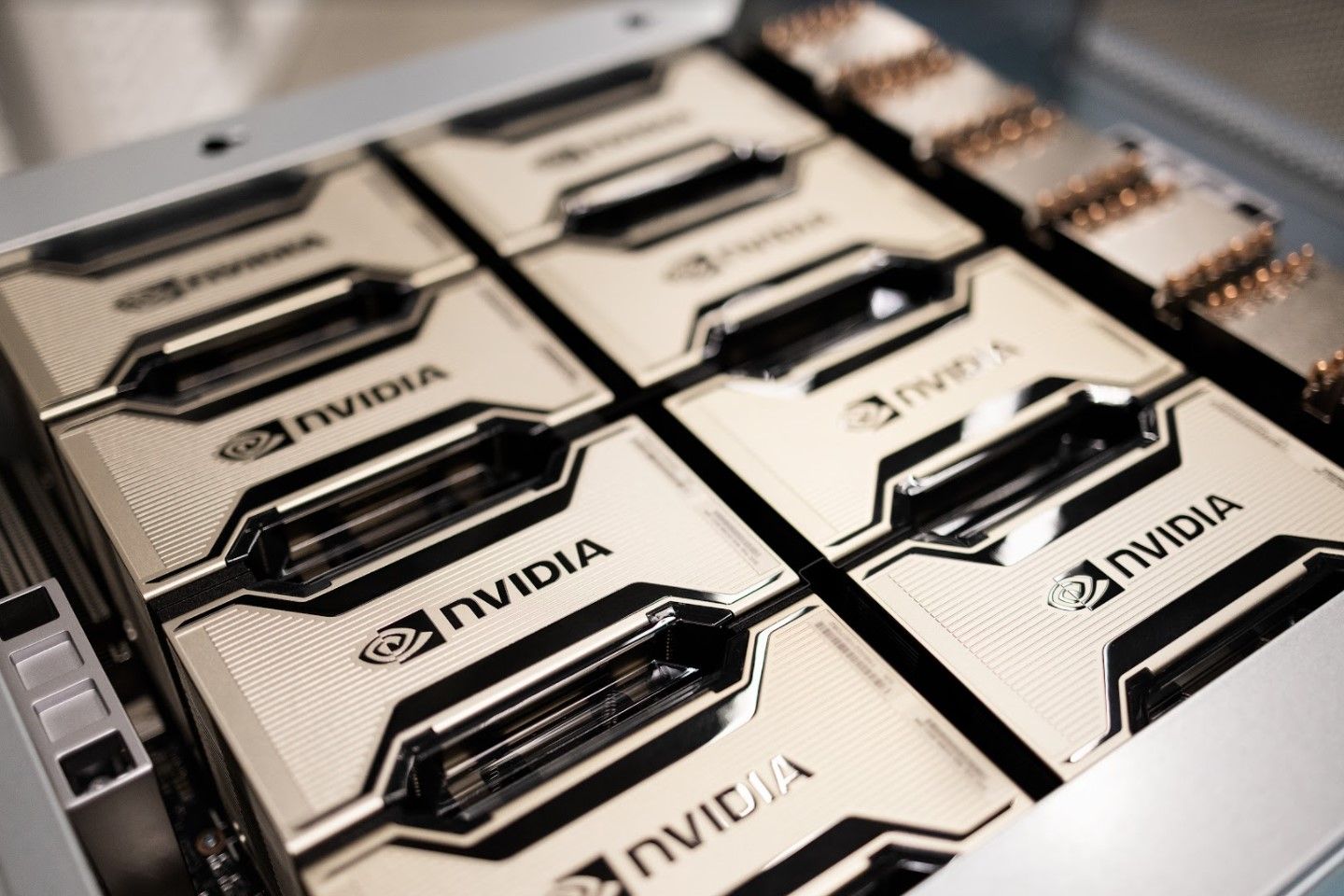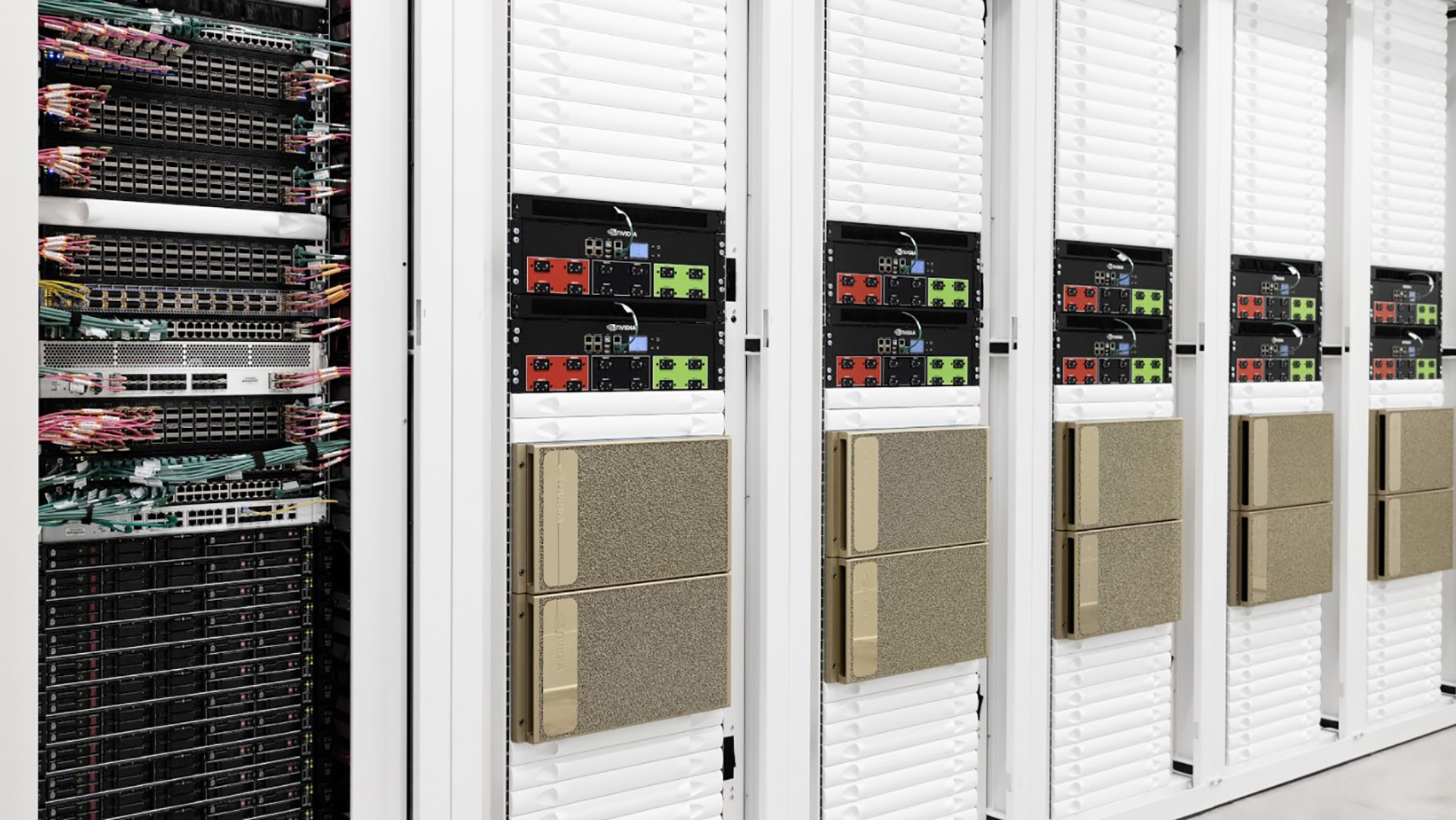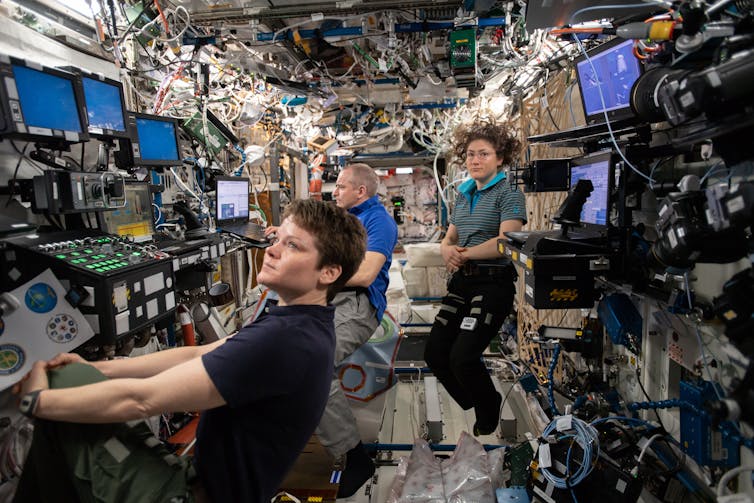Grand Theft Scratchy
Banned


It's not quite the Nostromo, but there's something very '70s sci-fi flick about the new Nvidia AI and healthcare supercomputer. It's called Cambridge-1, and it's a $100 million supercomputer built for scoping disease variations, designing drugs, and finding new treatments.
Take a look at these behind the scenes images.
If it's not the most stylish supercomputer you've ever seen (and please, show me another that oozes 2001: A Space Odyssey quite as much), it is as least the most powerful in ol' Albion. Cambridge-1 comes online as the UK's most powerful supercomputer, equipped with 80 golden DGX A100 systems.
Each DGX system contains eight A100 GPUs, powered by the same Ampere architecture as the latest GeForce RTX 30-series cards, alongside NVSwitches, BlueField 2 DPUs, and AMD EPYC CPUs. In total, that amounts to 8 petaflops of Linpack supercomputer benchmark performance, and 400 petaflops of AI acceleration, Nvidia claims.
"Cambridge-1 will empower world-leading researchers in business and academia with the ability to perform their life's work on the UK's most powerful supercomputer, unlocking clues to disease and treatments at a scale and speed previously impossible in the UK," says Jensen Huang, Nvidia CEO. "The discoveries developed on Cambridge-1 will take shape in the UK, but the impact will be global, driving groundbreaking research that has the potential to benefit millions around the world."
Cambridge-1's first jobs include work for AstraZeneca and GlaxoSmithKline on drug discovery, and King's College London and Guys' and St Thomas' NHS Foundation trust to teach AI models to generate synthetic brain models that can be used to enable earlier diagnosis and treatment of diseases, such as dementia, stroke, brain cancer, and multiple sclerosis.
Nvidia promised such a supercomputer as a part of its plan to buy up Cambridge-based chip designer, Arm. The deal has yet to be officially inked, however, and Nvidia is facing regulatory action in the UK due to national security concerns.
Cambridge-1 will, however, face stiff competition in the near future from the Met Office and Microsoft's advanced weather and climate supercomputer when it is finished summer of next year. That project is reportedly going to cost £1.2B ($1.6B) in total. The finished product will also be something special in that it will be powered entirely by renewable energy.

Nvidia's new healthcare supercomputer looks like something out of a sci-fi movie
And it's also incredibly useful in discovering new drugs and treatments.

NVIDIA Launches UK’s Most Powerful Supercomputer, for Research in AI and Healthcare
NVIDIA today officially launched Cambridge-1, the United Kingdom’s most powerful supercomputer, which will enable top scientists and healthcare experts to use the...
Last edited:


